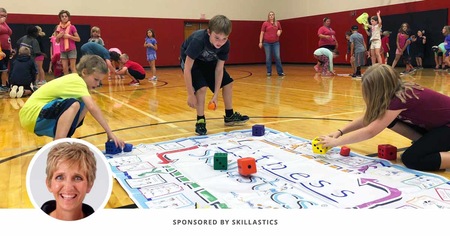"With this research, we wanted to offer our members and other out-of-school time professionals real-world examples of policy, practice, and professional development interventions," said Gina Warner, President and CEO, National AfterSchool Association (NAA), which is one of the sponsors of the research. "We've now provided a range of research studies that can inform and shape current discussion of best policies and practices to support child and youth wellness."
The research adds considerably to the knowledge of healthy eating and physical activity interventions in out-of-school time (OST) programs. It also highlights the substantial contribution towards childhood obesity prevention that is a broad-based goal for the field.
For instance, snacks and meals, already built into most programs, can make meaningful contributions to energy and nutrient requirements if they are carefully selected and presented in appealing ways. The NAA adopted standards for Healthy Eating and Physical Activity (HEPA) for OST programs in 2011. The standards are effective in addressing snack content and quality, staff training, curriculum, social support (including staff role modeling and parent engagement), program support, and environmental support. Since 2011, numerous national organizations, including the YMCA of the USA., Boys & Girls Clubs and the National Recreation and Parks Association, have adapted the NAA standards for use in their own programs.
The vision for the development of the publication was that the compilation of practice-based examples would provide visibility for important projects and spark ideas for future community and researcher collaborations.
The special issue of NDYD is sponsored by the Robert Wood Johnson Foundation and the National AfterSchool Association and edited by Jean Wiecha (RTI, International) and Georgia Hall (National Institute on Out-of-School Time).
Photo © Alliance for a Healthier Generation.




